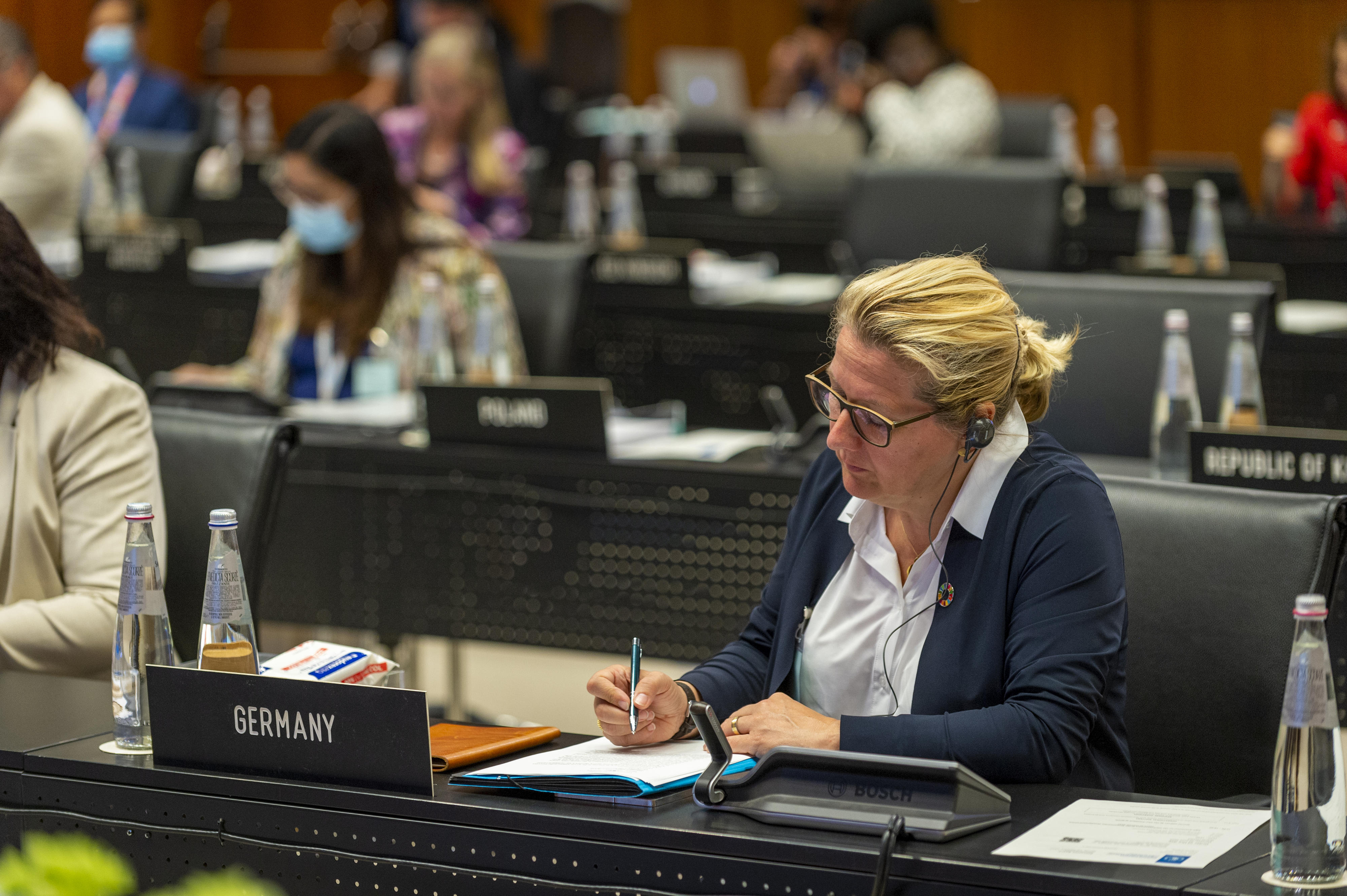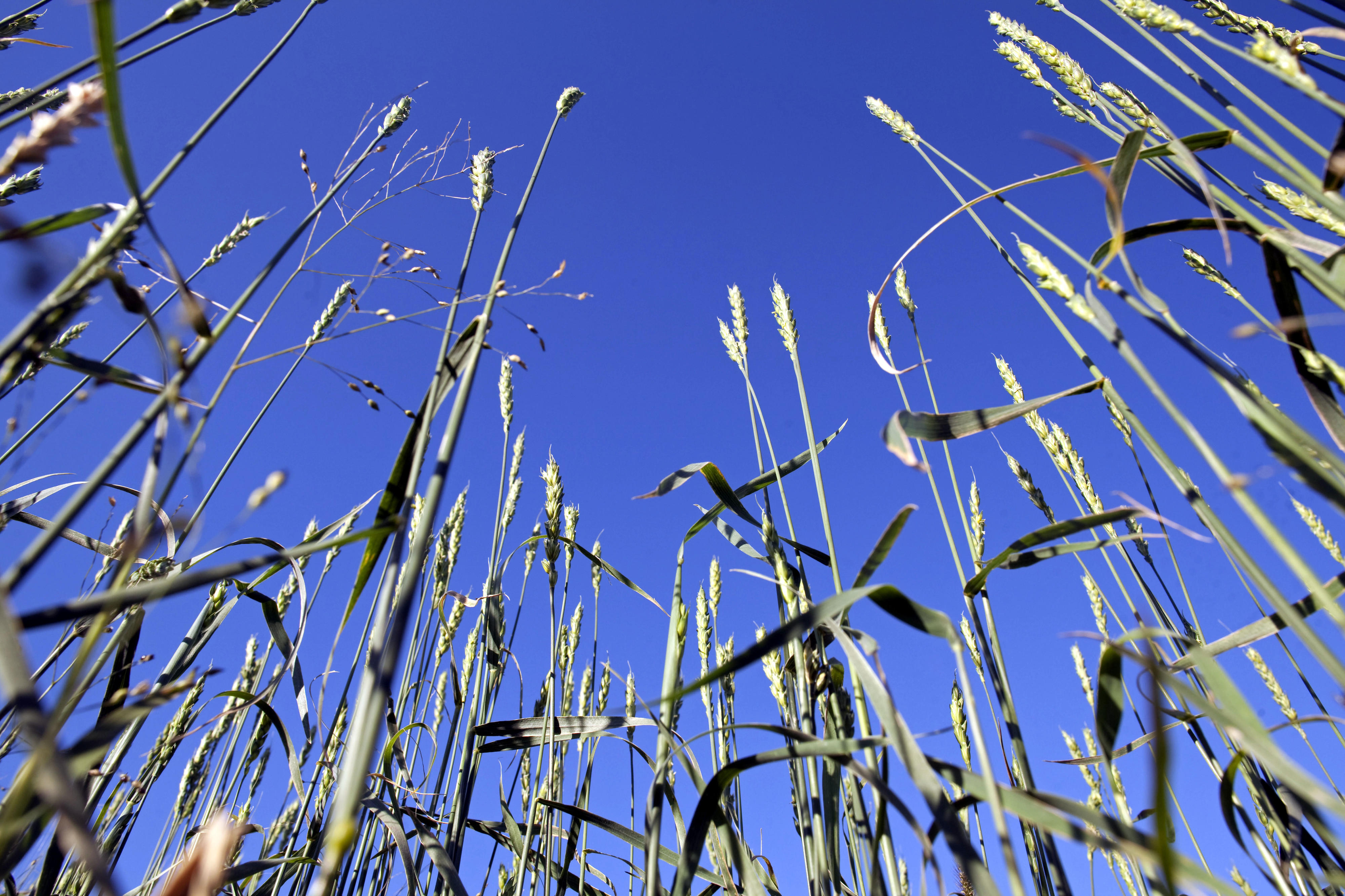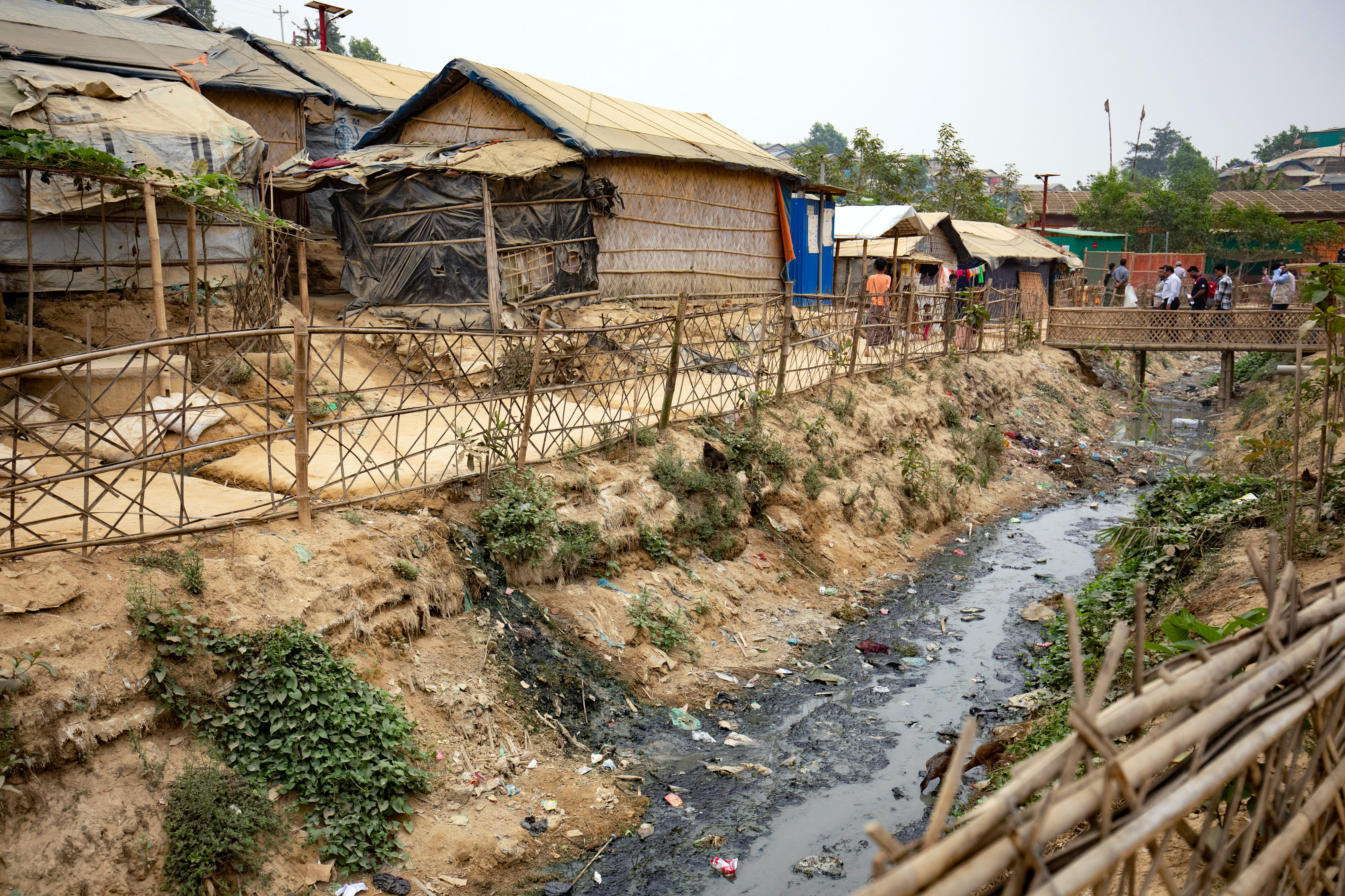Worldwide fight against hunger more important than ever before Development Minister Svenja Schulze announces additional support for World Food Programme
Development Minister Svenja Schulze at the annual meeting of the Executive Board of the UN World Food Programme (WFP) in Rome in June 2022
The World Food Programme is Germany's most important multilateral partner for fighting hunger worldwide. This year, efforts to fight hunger are more important than ever before. According to WFP, in the last two years, the number of people suffering acute hunger increased by 200 million, from 135 million in 53 countries to currently 345 million acutely hungry people in 82 countries.
Development Minister Schulze said: “Joint efforts to ensure food security have never been more important than today. Last year, Germany provided 1.2 billion euros to WFP, which means that we were the second-biggest donor. I am working on maintaining – and, if possible, exceeding – this high level this year. I am already able to announce today that my Ministry will increase its core funding for WFP from 28 million euros to 70 million euros this year. This is money well invested. We can thus create scope for WFP to pursue more long-term, sustainable strategies alongside its emergency relief activities.”
The Minister’s visit to Rome also serves as a preparation for the international conference on global food security that the Development Ministry is hosting in Berlin on Friday in cooperation with the Federal Foreign Office and the Federal Ministry of Food and Agriculture. WFP is a key partner for the Global Alliance for Food Security which is to coordinate global efforts to fight the hunger crisis and put the matter high on the international political agenda.
Development Minister Schulze made the case among member countries of the WFP Executive Board for taking not only a swift but also sustainable and holistic approach on food security.
Schulze said, “It is not just a question of overcoming this hunger crisis – it is a question of preventing the next one. That is why we need to make societies more independent in the long term from food imports and fluctuating world market prices. We can do this by, for instance, strengthening local production through more climate-adapted production, crop diversity, regional trade and storage capacities. Humanitarian aid, development cooperation and peacebuilding need to go hand in hand in order to prevent future crises and to secure peace. WFP is particularly well positioned to address this nexus, as its mandate covers both humanitarian aid and development cooperation. This is precisely the kind of dovetailing that we aim to boost through our funds: Every dollar we invest now in making people and food systems more crisis resilient will save us many dollars later. Because this way we can prevent recurring suffering and the much higher cost of long-term emergency aid.”
One example of WFP development interventions supported by the Development Ministry is the Sahel Resilience Initiative. The World Food Programme has been implementing the initiative with support from the BMZ in Mali, Mauretania, Niger, Chad and Burkina Faso since 2018. It is aimed at sustainably improving the food and income situations of the people and helping them adjust to climatic conditions such as droughts.
That is why the Sahel Resilience Initiative also links measures from various areas of life. This includes, for instance, rehabilitating agricultural land to support small farmers and producing and marketing nutritious food to stabilise the food situation. Additional measures include providing school meals, creating job opportunities for young people and providing health care support to pregnant women and nursing mothers. More than 1.5 million have already benefited from the WFP initiative.


